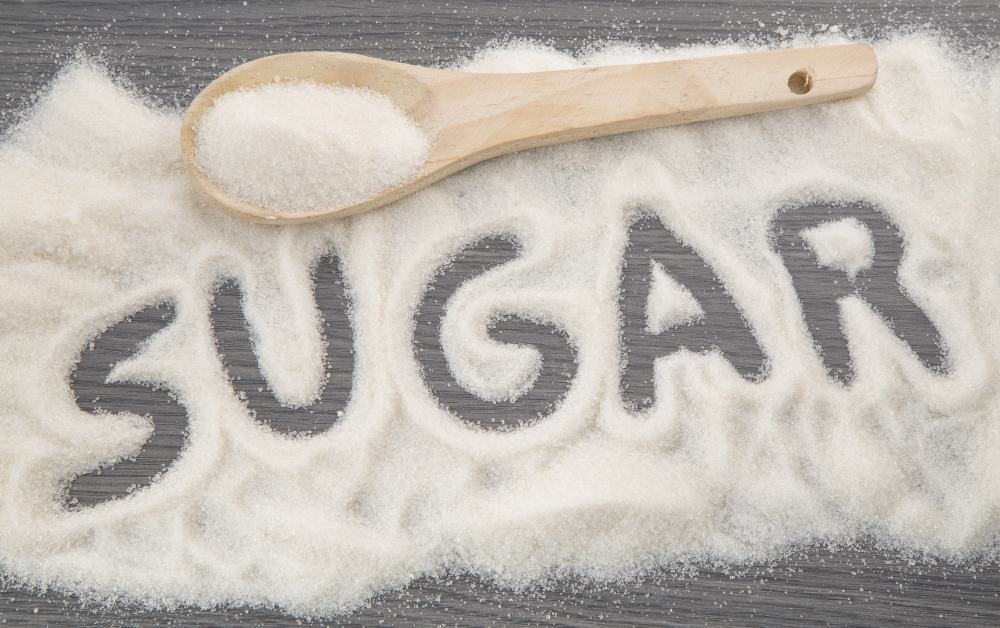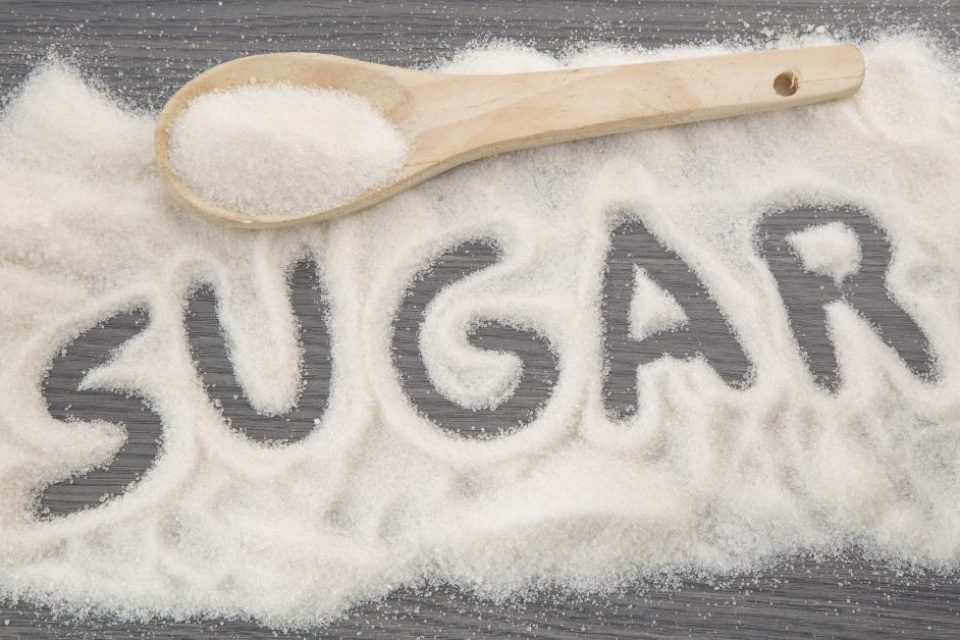
Last week, I blogged about the effect that stress can have on the body. Stress can manifest itself in different ways – physical, emotional, mental – but there are many things that can cause a stress response, and one of those is sugar.
What is sugar?
Sugar is essentially a carbohydrate, and there are different types including glucose, fructose, sucrose, lactose, dextrose and starch. Each of these types can be found in different foods, i.e. fructose is found in fruit, lactose in milk, and so on. The human body uses glucose as its primary source of energy. We have an enzyme in our saliva that immediately starts breaking down the carbohydrates so that when they reach the gut, they can be converted into glucose (energy) quickly. The human brain requires a lot of glucose to function, which is why you might find yourself unable to think clearly when you’re hungry (or hangry!); the brain requires 20% of our daily calories for its well-being, despite being a small part of our total body weight.
So what’s the harm?
The problem with sugar is that it’s very addictive. Many people describe it as a drug, and it does operate in a similar way as other drugs like cocaine and MDMA or ecstasy. When consumed, sugar sends a signal to the brain and cerebral cortex that signals the reward system, releasing a chemical called dopamine. Dopamine makes us feel good and we associate it with feelings of pleasure and satisfaction. The problem with this is we often want to replicate the feelings by repeating the behaviour, and this is what often underpins dependency. Over time, you build up a tolerance to the stimulus (in this case sugar) and it can result in cravings and addiction. This short video from TED Ed is excellent if you want to learn more.
Hormonal disruption
Sugar acts as a disruptor to the human body. It interferes with two important hormones associated with weight management; ghrelin (hunger) and leptin (satiety). Sugar can indicate to the brain that you’re full (or sated), when in fact you’re not. What then happens is you experience feelings of hunger or carbohydrate cravings which ultimately can lead to weight gain. Sweeteners like aspartame, acesulfame-potassium and sucralose (among many others) are simply sugars by another name, so don’t be fooled by thinking you’re being healthier by consuming those by the way.
Metabolic syndrome
An excess of sugar is also a major contributor to metabolic syndrome (the collective name for obesity, hypertension and diabetes). Elevated blood sugar levels can cause insulin resistance; insulin is released by the pancreas in order to bind to glucose and transport it to the liver and the muscles. Problems arise when the pancreas has to release more and more insulin to meet the increasing levels of glucose and resistance develops. Eventually the cells become resistant to insulin and that when diabetes takes hold. It is estimated that diabetes affects 4 million people in the UK, which is a staggering amount of people, particularly given that Type II diabetes is reversible. Diabetes causes peripheral nerve damage, blindness and kidney damage, and is a very serious condition to manage.
How much is too much?
The thing is with sugar, it’s pernicious, insidious and omnipresent. It’s very hard to be sugar-free, and even harder if you don’t cook everything from scratch at home because it is in almost everything. Check the labels on the packets or if you can, avoid buying things from jars and packets. I personally don’t have a major issue with the sugar in fruit (fructose), but I would caution against eating too much of it at night. The other obvious issue with sugar is that it very rapidly spikes your blood sugar levels, causing you to feel energised but very quickly dumped back down into lethargy. This means you’ll struggle to get consistent energy levels and can result in a see-saw of:
sugary snack = energy hit = energy-dip = sugary snack
What do I do?
I monitor my sugar intake as it’s my main vice. I am not sugar-free, although I have been for a few weeks at a time. I’ll admit I struggle to be entirely sugar-free, and I’m not sure that I want to be. Instead, I’ll keep a close eye on it and try not to binge. If I consume sugar, it’s actively and consciously. I won’t feel guilty about it, but if I feel it’s getting out of hand, I’ll rein it back in again. I will always avoid having it for energy, as I feel that’s a slippery slope, but if I do have some it will be for pleasure like a cake, flapjack or biscuit.
Sugar consumption is just one aspect of good health. If you’re interested in finding out what your Health IQ is, try our short online quiz to find out how you score. Get in touch via the website or info@bodyshotperformance.com if you’d like to talk to one of our health experts.
Leanne Spencer is an entrepreneur, coach, TEDx Speaker, author of Remove the Guesswork, and founder of Bodyshot Performance Limited. Bodyshot is a health and fitness consultancy that helps busy professionals get more energy by removing the guesswork around their health, fitness and nutrition. Visit www.bodyshotperformance.com or email info@bodyshotperformance.com to register your interest in our services and connect with us on Facebook, Instagram and Twitter.


